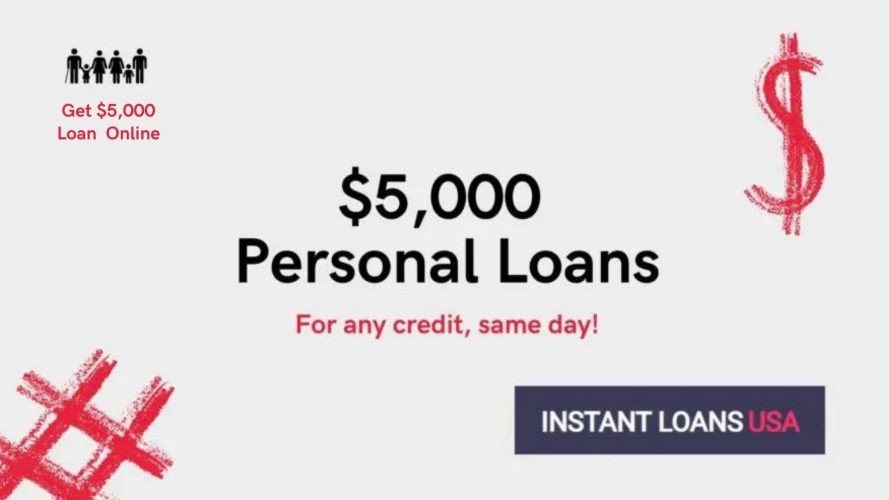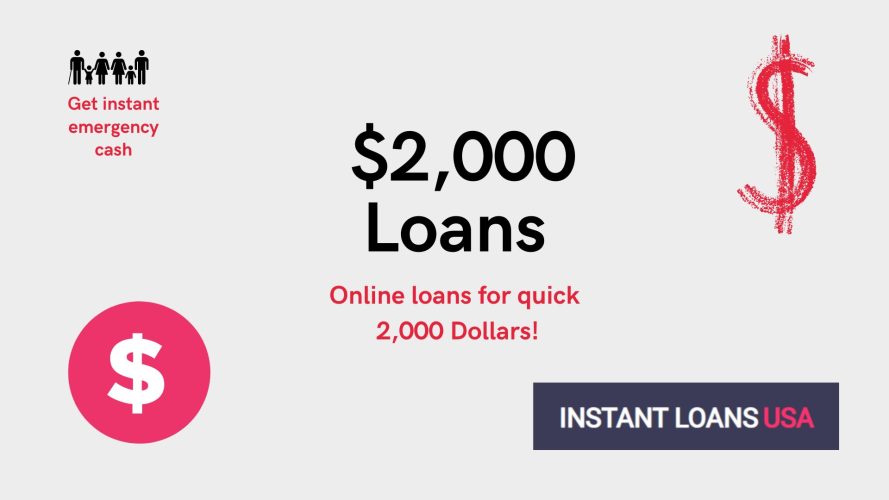Florida residents may find themselves in need of extra cash from time to time, whether it’s for home repairs, medical bills, or unexpected expenses. In these situations, Online Personal loans can be a valuable tool to help manage financial challenges. Personal loans in Florida are available from a variety of lenders, and borrowers can choose from a range of loan amounts, repayment terms, and interest rates.
This article will explore the ins and outs of personal loans in Florida, including eligibility requirements, application processes, and tips for finding the best loan offers.
Rates and Terms of Personal Loans in Florida
| Legal Status | The status of the loan as regulated by the state - legal, restricted, or prohibited | Legal |
|---|---|---|
| Minimum Loan Amount | The minimum amount that you can borrow with a payday loan | $1000.00 |
| Maximum Loan Amount | The maximum amount that you can borrow with a loan | $35000.00 |
| Max APR | Maximum interest charged for borrowing that shows the yearly cost of the loan as percentage | 450.00% |
| Collateral | The need to provide any kind of collateral to apply for a loan | None, unsecured |
| Terms | The term for which the loan is issued | Min loan term: 90.00 day(s) Max loan term: 1825.00 day(s) |
| Turnaround Time | The time it takes for the loan to reach your account | 1 business day |
In Florida, personal loans are legal and can be issued up to $35,000 with no collateral required. However, borrowers should be aware of the state’s regulations regarding interest rates and loan terms.
The maximum annual percentage rate (APR) that can be charged on a personal loan in Florida is 450%, which is significantly higher than in other states. Borrowers should carefully review the loan terms and fees to ensure they can afford the repayments, as high interest rates can make the cost of borrowing significantly more expensive.
Personal loans in Florida have a minimum loan term of 90 days and a maximum term of 1,825 days, giving borrowers some flexibility in repayment options. Additionally, the turnaround time for personal loan funds is typically one business day after approval.
It’s crucial to shop around and compare offers from various lenders when applying for a personal loan in Florida to find the one that best suits your financial needs. Be sure to examine these before applying as different lenders may have different eligibility requirements, such as income and credit score. The application process can be sped up by gathering and preparing the required paperwork, such as identification and proof of income.
Overall, personal loans can be a useful tool for managing financial emergencies or making important purchases. Borrowers in Florida should be aware of the state’s regulations and carefully review loan terms and fees to ensure they can afford the repayments.
Florida Personal Loans and How They Operate
Personal loans are a form of unsecured loan that can assist Floridians in covering a range of costs, including debt consolidation, home renovations, and medical bills. These loans are frequently given out based solely on the borrower’s creditworthiness and capacity to pay back the loan; no collateral is usually needed to secure the loan.
Borrowers typically need to present evidence of income, identification, and credit history when applying for a personal loan in Florida. The borrower’s credit score may be impacted if certain lenders demand a hard credit check. Depending on the lender and the type of loan, the loan application procedure can take a few days to a week.
It’s crucial to compare loan offers from various lenders and thoroughly go over all of the terms and conditions, such as interest rates, fees, and repayment terms, before selecting a personal loan in Florida. In order to avoid defaulting on the loan and harming their credit score, borrowers should also think about their capacity to return the loan and place repayment first.
Application Steps for Personal Loans in Florida
When applying for a personal loan in Florida, there are several steps to follow.
- The first step is to research and compare different lenders to find the best option that suits your needs and financial situation. You will also need to review the lender’s eligibility requirements, including credit score, income, and employment history, to see if you meet the criteria. In addition, you will need to gather the necessary documentation, such as proof of income, identification, and credit history, to include with your loan application.
- You must wait for the lender to review your application and decide whether to accept the loan after you have submitted the loan application form, which might necessitate a hard credit inquiry.
- After your loan has been approved, you should closely read the terms and conditions, including the interest rate, repayment period, and any additional fees.
- If you agree to the loan terms, you will sign the loan agreement and return it to the lender. After the loan agreement is signed, the lender will typically transfer the loan funds to your bank account within a few days.
Before applying for a personal loan in Florida, keep in mind that the application processes may differ based on the lender and the type of loan, so be sure to carefully review the requirements of each lender.
How Personal Loans in Florida Differ from Other Types of Loans
In Florida, personal loans are distinct from other loan kinds like secured loans and payday loans in a number of ways. Personal loans are unsecured and do not require collateral, whereas secured loans do and require collateral such as a vehicle or house to secure the loan. Personal loans have fixed repayment terms and usually lower interest rates than payday loans, whereas payday loans typically have short repayment terms and high interest rates.
Furthermore, secured loans are frequently used for particular purposes, like the purchase of a vehicle or a home, whereas personal loans can be used for a variety of purposes. Overall, personal loans are a common choice for people in need of credit because they provide flexibility and lower interest rates than other types of loans.
Compare Loans Available in Florida at Instant Loans USA
How to Use Personal Loan in Florida
Florida residents can use personal loans for a variety of things, including consolidating debt, covering unforeseen costs, funding renovations or repairs to their homes, paying for medical expenditures, or making large purchases. However, it’s crucial to use personal loans sensibly and refrain from accumulating additional debt. Following are some tips for using personal loans in Florida:
- Assess your needs: Determine how much money you need and for what purpose. Only borrow the necessary amount to cover your immediate expenses.
- Compare loan offers: Research multiple lenders and compare loan terms, interest rates, and fees to find the best fit for your situation.
- Make a repayment plan: Develop a repayment plan that takes into account your new loan payment and other financial obligations. Stick to your budget and prioritize paying off your loan as quickly as possible.
- Avoid taking on unnecessary debt: Only use personal loans for necessary expenses and avoid taking on more debt than you can handle. It’s important to borrow responsibly and not get into a cycle of debt.
By following these tips and using personal loans responsibly, you can effectively manage your finances and achieve your financial goals in Florida.
Benefits of Using a Personal Loan in Florida
Personal loans in Florida offer several benefits, including:
- Unsecured: Most personal loans are unsecured, meaning that borrowers are not required to provide collateral. This makes personal loans a good option for those who don’t want to risk losing their assets, such as their home or car.
- Flexible: Personal loans can be used for a variety of purposes, such as debt consolidation, home improvements, medical expenses, or other unexpected costs. Borrowers have the flexibility to choose how to use the loan funds.
- Fixed interest rates: Personal loans typically have fixed interest rates, meaning the interest rate stays the same for the duration of the loan. This allows borrowers to know exactly how much they need to pay each month and for how long.
- Predictable repayment terms: Personal loans have fixed repayment terms, which means that borrowers know exactly when the loan will be paid off. This allows them to budget and plan their finances accordingly.
- Quick access to funds: Personal loans offer quick access to funds, with many lenders offering same-day or next-day funding. This makes personal loans a good option for those who need cash quickly.
Overall, personal loans in Florida can provide borrowers with the flexibility, predictability, and quick access to funds they need to manage unexpected expenses or achieve their financial goals.
Eligibility Criteria for Personal Loans in Florida
When applying for a personal loan in Florida, there are certain requirements that borrowers need to meet in order to be considered eligible. While these requirements may vary depending on the lender, some common ones include:
- Age: Borrowers must be at least 18 years old.
- Residency: Applicants must be legal residents of Florida.
- Income: Lenders usually require proof of a stable and regular source of income, such as employment or government benefits.
- Credit score: While some lenders may offer personal loans to those with bad credit, others may require a minimum credit score.
- Bank account: Borrowers often need to have an active checking or savings account.
It’s important to note that meeting these requirements doesn’t guarantee loan approval, as lenders may also take into account other factors such as debt-to-income ratio and employment history. Borrowers should also carefully review the terms and conditions of the loan, including interest rates and repayment terms, before signing any loan agreement. By meeting these requirements and carefully selecting a reputable lender, borrowers in Florida can secure a personal loan that meets their financial needs.
How to Repay a Personal Loan in Florida
Making monthly payments to the lender until the debt is repaid in full is typically how a personal loan in Florida is repaid. The repayment schedule, including the monthly payment amount and term duration, is laid out in the loan agreement.
Borrowers have three other options for making payments:
- automatic bank withdrawals,
- mail,
- internet payment sites.
Payments must be made on time and in full to prevent late fees and possible credit score damage. If borrowers are having trouble making payments, they should get in touch with the lender right away to talk about alternate payment plans or loan modification alternatives.
The Bottom Line
For Floridians in need of financial help, personal loans can be a useful resource. However, borrowers must approach these loans responsibly by doing extensive research, contrasting loan offers, attentively reading the terms and conditions, and making sure they have a reliable repayment strategy in place. Florida residents can take charge of their finances and accomplish their financial objectives by using personal loans wisely and strategically.



